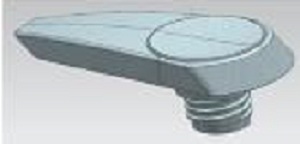|
Indian Plastics Institute (IPI) organized a
two day conference on Styrenics at Mumbai recently.
This was probably the first time that a conference
devoted entirely to Styrenics was held in the
Asian region.
Styrenics products, although quite old, have
not kept pace with Polyolefins as well as Vinyls
due to the inherent higher costs of feedstocks.
In fact, Styrenics constituted only 21 million
tons of the total global plastics consumption
of 165 million tons in 2004. Indian Styrenic
consumption was less than 300KT in 2003 and
lagged behind when compared to Polyolefins and
Vinyls.
This conference brought about the confirmation
of the news that Reliance Industries is setting
up a 550KT capacity Styrene Monomer plant at
Jamnagar using the Ethyl Benzene process of
ABB Lummus/UOP, likely to be commissioned by
the end of 2006.
Highlights of the conference:
 |
 |
Alpha Methyl
Styrene dimer was shown to produce narrower
molecular weight distribution in Polystyrene
compared to the other chain terminating
agents. |
 |
 |
Mounting is simple for different
moulds |
 |
 |
Reduced clamping forces |
 |
 |
Subsequent assembly is eliminated |
The major usage of Styrenics is in the fields
of automobile (ABS), white goods (HIPS/ABS),
electronics (PS/HIPS). Disposable rigid packaging
is possibly the application that constitutes
40% of the global Styrenic consumption. However
only 10% of Styrenics consumed in India finds
usage in packaging. Another interesting application
of foamed Polystyrene is in the area of construction
where it provides excellent insulation. Expandable
Polystyrene as well as extruded foams are used
in this application with each providing some
advantages compared to the other. Both routes
are widely used.
While General Purpose Polystyrene and High
Impact Polystyrene as well as ABS have a major
share of 21 million tons consumption, other
specialty products such as SBS/SIS/SEBS/SEPS
as elastomeric polymers and ASA, MABS and blends
of PC/ABS, PPO/PS also have a very interesting
applications. These specialities are expected
to have about 10-15% share of the total market
of Styrenics.
With 3 large producers of Polystyrene and 2
producers of ABS, India is self-sufficient and
can provide the current needs of the Indian
industry. In fact, almost 100KT of Polystyrene
is exported from India. This situation will
continue for at least another 3-5 years. It
is expected that with the local availability
of Styrene monomer in 2007, the Indian market
would show better growth.
Previous Article
Next Article
Tell Us What You Want

Moulds for lotion pump
| | | | 